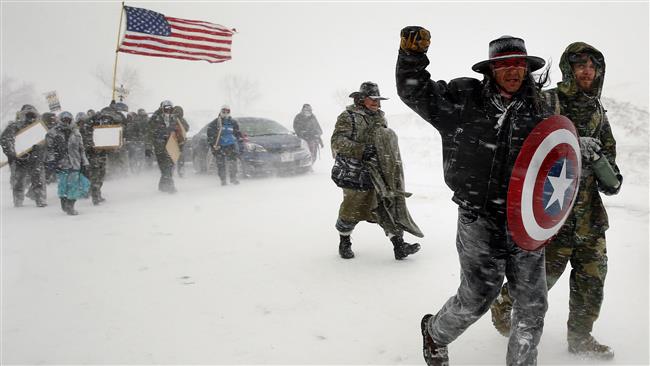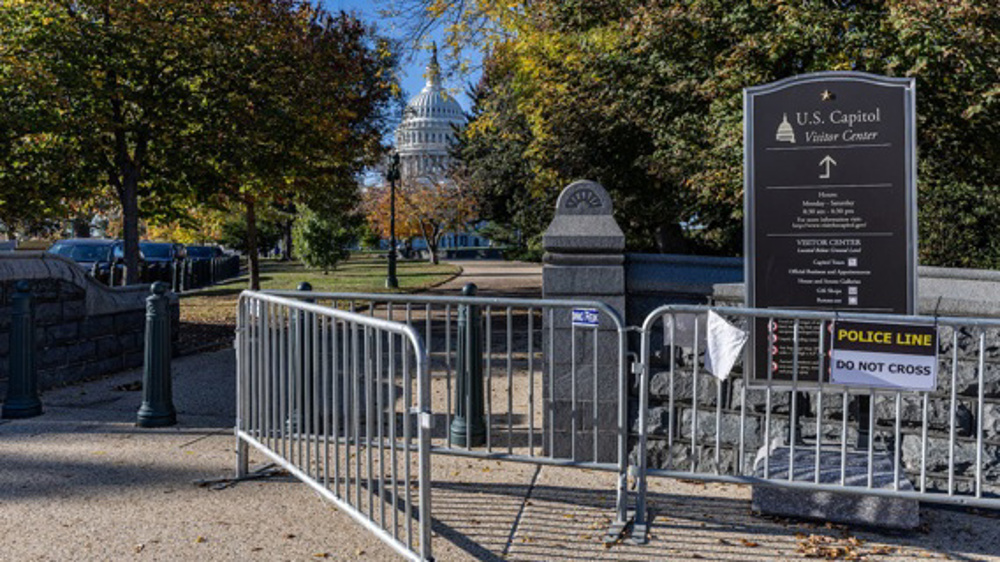US Army approves final phase of controversial Dakota pipeline
The US Army has granted the final permit for the controversial Dakota Access oil pipeline after an order from President Donald Trump to expedite the project, dealing a blow to Native American tribes and environmental activists.
In a court filing on Tuesday, the Army Corps of Engineers said it would allow the final 1.5 miles of the more than 1,700-mile pipeline to tunnel under the Missouri River north of the Standing Rock Sioux Reservation.
In doing so, the Army cut short its environmental impact study of the pipeline despite a January 18 notice that it would accept public comments on the project through February 20.
In a letter to Congress, Deputy Assistant Secretary of the Army Paul Cramer said that "consistent with the direction" of President Trump’s memorandum, his agency would "waive its policy to wait 14 days after Congressional notification before granting an easement."
He said that the easement will be granted “no earlier than 24 hours” after the delivery of the letter, which was dated February 7.
The decision sets the stage for a tense showdown at the site of the drilling, where native tribes and environmentalists have been camped for nearly a year in protest.

It also came after Trump issued an executive order in his first week in office to speed up the project.
Read more
Led by the Standing Rock Sioux, more than 100 Native American tribes have warned that the four-state pipeline would destroy their sacred sites and contaminate their water resources.
The protest movement has attracted high-profile political and celebrity support across the country.
Following Tuesday’s decision, the Standing Rock Sioux vowed to shut pipeline operations down if construction was completed.
"As Native peoples, we have been knocked down again, but we will get back up," the tribe said in a statement. "We will rise above the greed and corruption that has plagued our peoples since first contact. We call on the Native Nations of the United States to stand together, unite and fight back."
The $3.8 billion pipeline would be the first to transport crude oil from Bakken shale, a vast oil formation in North Dakota, to refineries in the US Gulf Coast.
Israeli military made no territorial gain in Lebanon: Report
VIDEO | 70 Palestinians killed in Israeli strikes across Gaza Strip
US Election Day: First votes cast in New Hampshire
Nov. 4: ‘Axis of Resistance’ operations against Israeli occupation
Britons demand release of pro-Palestine activists
VIDEO | Israel's unwinnable war in Lebanon
Non-aligned nations condemn Israeli violation of Iran's sovereignty
IRGC: 10 foreign-backed terrorists killed, arrested in Sistan and Baluchestan















 This makes it easy to access the Press TV website
This makes it easy to access the Press TV website